 Carter Horsley
Carter HorsleyJun 24, 2013
Carter's Review
One of the city’s most elegant side-street apartment buildings, Hayden House at 11 West 81st Street is across the street from the planetarium at the American Museum of Natural History in Manhattan Square.
It was erected in 1908 by Samuel W. Bowne, a chemical manufacturer who also built the Hotel Colonial on the same block at Columbus Avenue.
Isaac E. Ditmars was the architect.
According to a February 13, 2000 article in The New York Times by Christopher Gray, the 12-story building “offered full-floor apartments and a swanky, Beaux-Arts-style façade.”
In 1938, the article continued, George Garfield, gutted the building, which was then known as the Bownette, converted it to 36 apartments and renamed it Hayden House after Charles Hayden, a banker who had the museum’s planetarium, completed in 1935, named after him. The planetarium was subsequently rebuilt as a spectacular glass building and renamed the Rose Center.
Bottom Line
This very elegant mid-rise apartment building is a next door neighbor to the Beresford and overlooks the fabulous Rose Center of the American Museum of Natural History on Central Park West.
Description
The highly decorative building, which is just to the east of the Beresford, has balustraded balconies on the fourth and eleventh floors and handsome balconies spanning two windows on the 6th, 9th and 10th floors.
The building’s top floor has dormer mercers and it has a canopied entrance and a one-story rusticated limestone base with deeply inset, arched windows.
Most of its other windows have 20 panes.
The building has a 4-step-up entrance flanked by a moat and sidewalk landscaping.
Amenities
The building has a doorman, central air-conditioning and some fireplaces. It is pet friendly.
Apartments
Apartments have high ceilings.
Penthouse C is a one-bedroom unit that has an entry foyer that leads past a 7-foot-wide dining area next to a 9-foot-long open, windowed, kitchen to a 19-foot-long living room with a wood-burning fireplace that opens onto a 20-foot-wide atrium that leads to a 26-foot-long terrace on the east side and a 27-foot-long terrace on the west side.
Apartment 10C is a two-bedroom unit that a 14-foot-long foyer that leads to a 19-foot-wide living/dining area next to a pass-through kitchen.
Apartment 2C is a one-bedroom unit with an 8-foot entry foyer than opens onto a 18-foot-long living room with a 7-foot-square dining area near the enclosed kitchen.
Apartment 3B is a one-bedroom unit with an 18-foot-long living room with a fireplace and a dining area next to a pass-through, 11-foot-long kitchen.
History
In 1900, Samuel Bowne had Schickel & Ditmars put a new Beaux-Arts front on a brownstone at 35 West 57th Street that, according to a October 30, 2005 article in The New York Times by Christopher Gray, “remains the block’s most ebullient work of architecture, an endearingly frothy façade that looks like a Baroque-style refrigerator." He added that “Bowne became a millionaire manufacturing cod liver oil seasoned with lime, which suppressed its naturally noxious taste.”
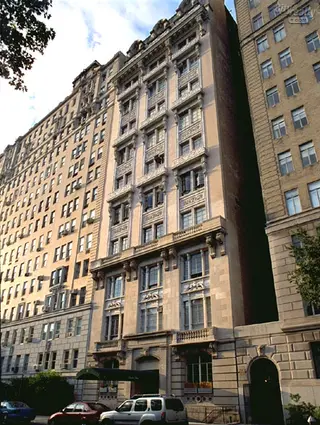
- Co-op built in 1908
- 1 apartment currently for sale ($1.995M)
- Located in Central Park West
- 36 total apartments 36 total apartments
- 10 recent sales ($640K to $3.4M)
- Doorman
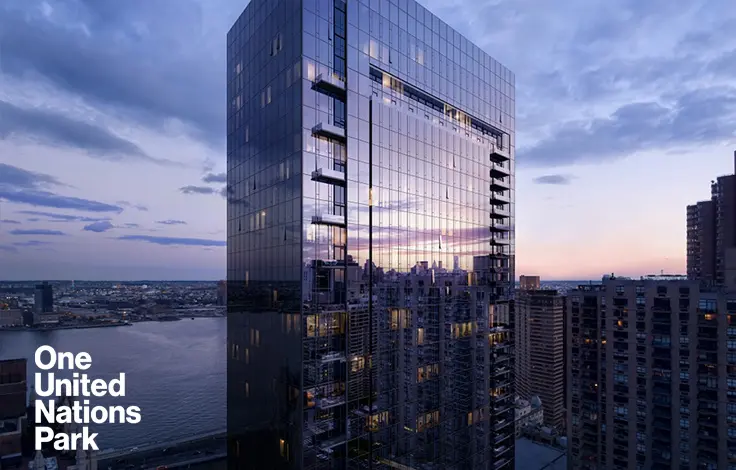
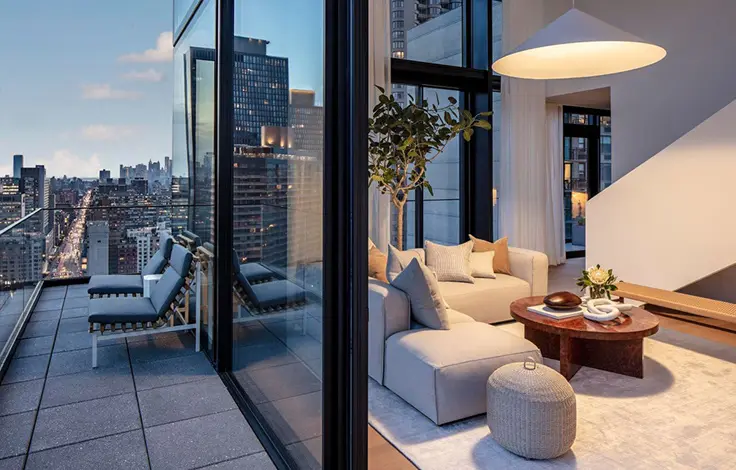
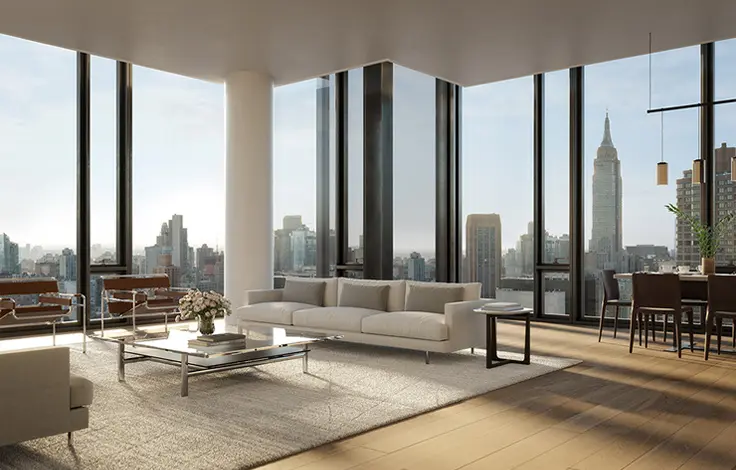
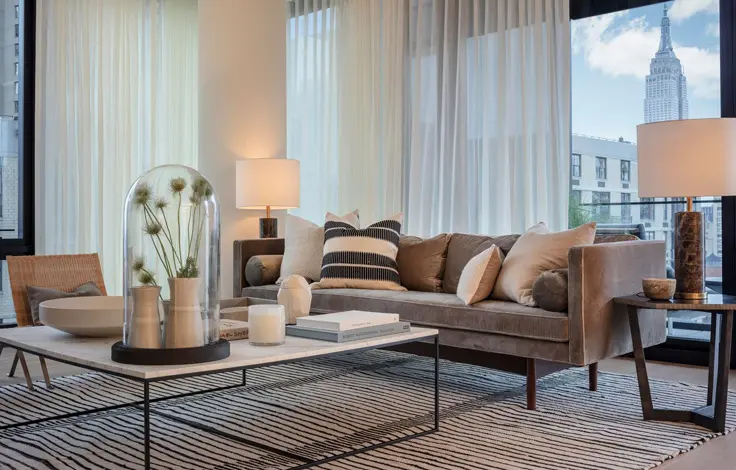
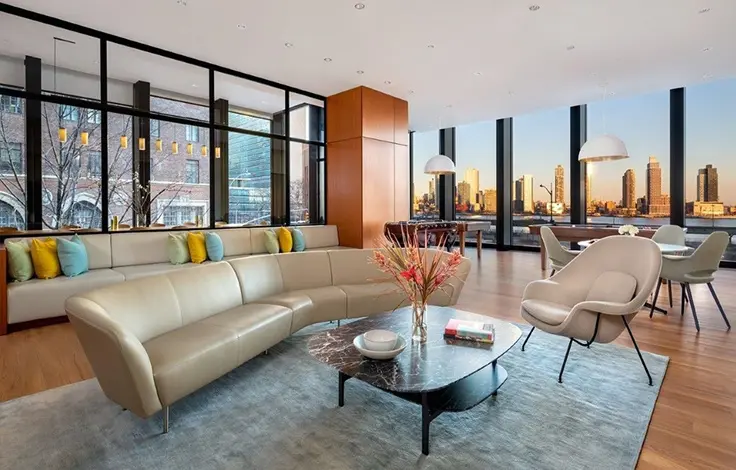
 6sqft delivers the latest on real estate, architecture, and design, straight from New York City.
6sqft delivers the latest on real estate, architecture, and design, straight from New York City.
